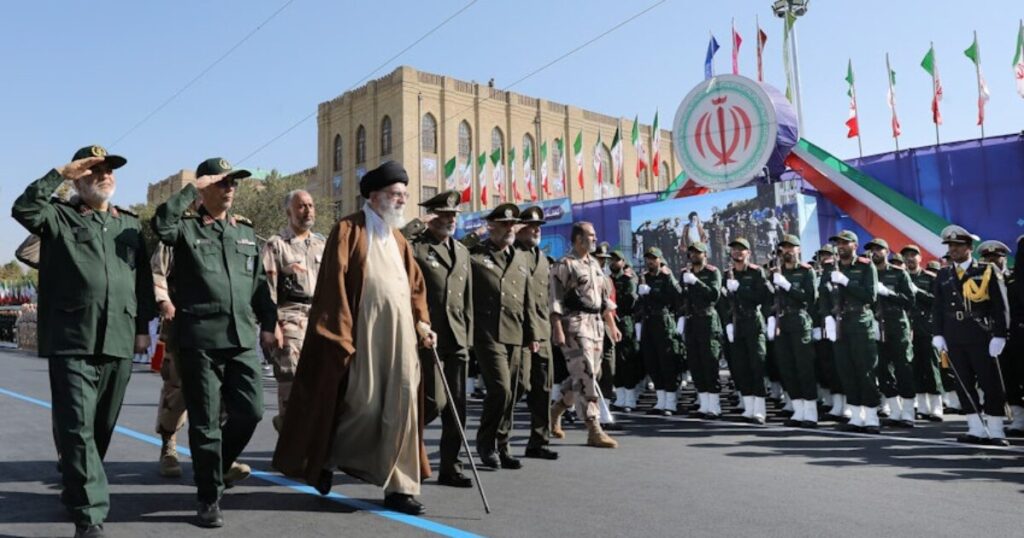In recent global politics, a concerning trend has emerged as nations like Iran, China, Russia, and North Korea align against the United States, fostering an anti-American alliance. This development has unfolded amid a climate of divisive politics within the U.S., where domestic concerns often overshadow international threats. As the Democratic Party amplifies its criticism of President Trump, branding him a national security risk, the attention is diverted from the calculated maneuvers of these adversarial nations. Since the dissolving of the Soviet Union, the U.S. was perceived as the unchallenged superpower, leading to a dangerous complacency that has allowed rivals to exploit vulnerabilities and challenge Western hegemonic structures without facing substantial opposition.
While American political factions are engaged in a fierce ideological struggle, Iran and its allies are diligently executing well-defined strategies to destabilize Western influences globally. Iran has escalated its confrontations with the U.S. through various means, including cyberattacks and assassination plots targeting U.S. officials, including President Trump. In contrast, President Biden’s administration appears out of touch with the immediacy of threats from Iran, as evidenced by his cautious approach towards Israel’s military responses to Iranian aggression. In a stark contrast, Trump has advocated for a more aggressive military strategy, underscoring a fundamental divide in how each political entity perceives and reacts to the looming threat of Iranian and broader anti-Western provocations.
The consolidation of an anti-Western bloc has fortified the adversarial relationship between Iran, Russia, China, and North Korea, which have coalesced around a mutual disdain for Western dominance. Their collaboration spans economic, military, and technological domains, effectively challenging the West’s historical advantages. Among notable joint ventures, a prominent naval exercise in 2024, dubbed “Maritime Security Belt – 2024,” underscored the increasing coordination between these nations in strategically vital waterways. It emphasized their unified stance as they strive to promote a multipolar world order while exacerbating tensions with Western powers.
Iran’s strategic partnerships, especially with Russia, have significant implications for Middle Eastern stability. As they deepen military relationships, Iran has supplied Russia with drones for use in Ukraine, highlighting the intertwining of their military interests. This relationship extends to shared objectives in regional conflicts, with both nations backing the Assad regime in Syria. The implications of such partnerships resonate beyond military collaboration; they threaten to destabilize existing power balances within the region as they bolster each other against Western influence, with growing concerns about Moscow’s complicity in Iranian activities.
Additionally, these nations are challenging the traditional economic frameworks dominated by the West, particularly as Iran seeks to sidestep sanctions imposed due to its nuclear ambitions and support for terrorism. Russia and China have emerged as essential economic partners for Iran, with China importing a significant portion of Iran’s oil exports. This dependence allows Iran to sustain its economy while seeking innovative approaches to circumvent Western financial restrictions. Moreover, shared platforms like BRICS and the Shanghai Cooperation Organization illustrate their commitment to a multipolar economic structure, undermining the supremacy of the U.S. dollar and diminishing Western influence in global finance.
However, inherent contradictions and competitive dynamics among these nations challenge the longevity and stability of the alliance. Iran’s dissatisfaction with its economic relationship with China, coupled with the competition between Iran and Russia for influence and market share in China, introduces significant tensions. These dynamics complicate their efforts to effectively collaborate against Western interests. Meanwhile, the West appears paralyzed, continuing its engagement with China while inconsistently implementing sanctions against Iran, thereby allowing adversaries to thrive and undermining the collective security of the West. A strategic pivot is essential for a robust response to these compounding threats, requiring recognition of the anti-Western alliance’s existence and a unified approach to addressing Iran’s destabilizing actions and nuclear ambitions.

